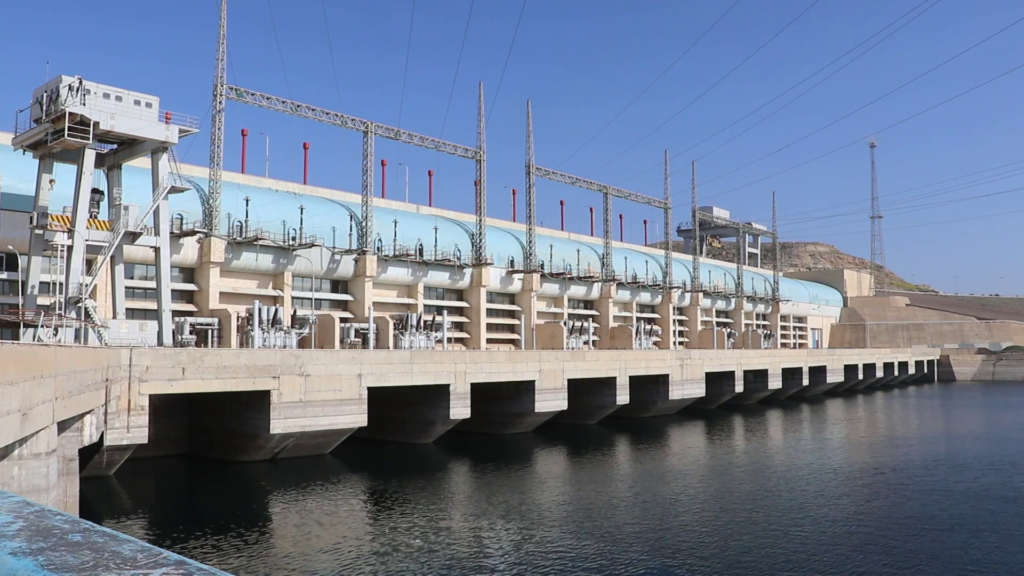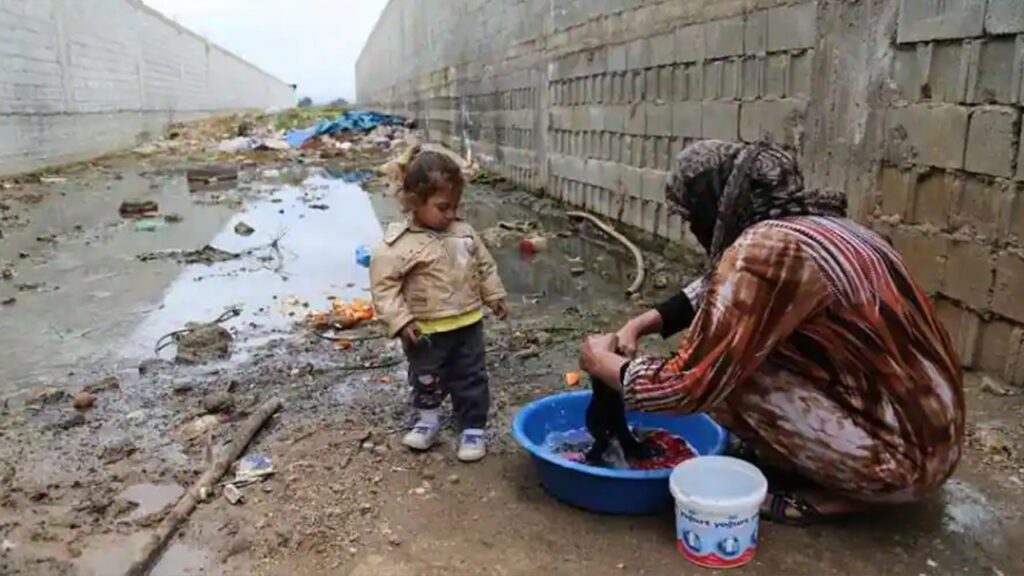Robin Fleming
After over a decade of war, crisis has penetrated every aspect of Syrian life: from the political and economic spheres down to the most fundamental aspects of infrastructure. These crises are frequently exacerbated by the meddling of foreign powers seeking to benefit and exploit the suffering of the Syrian people and nowhere is this more evident than in North and East Syria (NES) where Turkey uses every opportunity to attack, rob and destabilize the areas under the power of the Autonomous Administration of North and East Syria (AANES).
To prove my point, I want to examine the most fundamental aspect of life in Syria and for any country – water. According to the Rojava Information Center (RIC) on 1 March, AANES announced that the operations of Tishrin Water Dam in NES’ Manbij region would be suspending operations for at least a week, rending it unable to produce electricity. Tishrin dam resumed operations on 8 March but at a lesser capacity. The RIC reports that “due to the severe shortage of water entering the Syrian Euphrates from Turkey, the turbines that are running cannot produce so much electricity. For example, in recent months, Kobane and its surrounding villages were receiving 45MW for 4 hours/day from the dam.”

Tisrin Dam is one of three dams on the Euphrates river, alongside Euphrates Dam near Tabqa and Hurriya near Raqqa, meaning even a temporary suspension of operations can be disastrous for NES. Reportedly 70% of water in Syria flows from neighbouring countries, like Turkey. The Euphrates is essential to the lives of millions of Syrians, both for supplying electricity, drinking water, agriculture and hygiene.
The low water levels cannot be written off as a lack of rainfall, nor bad planning. The reason for Syria’s water shortage is crystal clear – Turkey’s war against AANES. Alongside military incursions and constant drone attacks targeting both civilians and infrastructure, Turkish President Recep Tayyip Erdoǧan has made calculated efforts to limit water flow from the Euphrates into Syria, weakening his ‘so-called enemies’ in preparation for his next operation.
The ANHA Hawar News Agency specifically pointed to the construction of the Ataturk Dam in the Gaziantep region of Turkey as one of the major obstacles to water flow into Syria. The Ataturk dam has a capacity of nearly 50 billion cubic meters of water, placing it among the top 5 largest dams in the world. This is one of dozens of dams storing a total of 670 billion cubic meters of water built by Turkey, all within the last 50 years, which according to ANHA is ‘preventing the pumping of the Euphrates water into Syrian territory.’
Turkey’s diversion of water has resulted in ancient rivers in Syria becoming completely dried up, cutting off vital resources for thousands of Syrians, such as the rivers of al-Sajur near Manbij, al-Balikh near Tel Abyad, and al-Khabour in the Jazira region. (Same ANHA link)
These are simply the latest events in the years long water crisis NES has suffered at the hands of the Turkish government. But it will be felt more and more acutely as it follows the corona pandemic, a cholera epidemic and now also February’s devastating earthquakes. Not only are electricity and drinking water denied to Syrian civilians including Internally Displaced People (IDP), but also safety, hygiene and consequently the dignity of being able to keep yourself clean and healthy which should be denied to no human.
The non-governmental organisation, Human Rights Watch (HRW), has repeatedly criticised Turkey in relation to Syria’s water crisis. In March of 2020, at the start of the Corona Pandemic, HRW accused Turkey of weaponising water during a global pandemic, saying:
“Turkish authorities’ failure to ensure adequate water supplies to Kurdish-held areas in Northeast Syria is compromising humanitarian agencies’ ability to prepare and protect vulnerable communities in the COVID-19 pandemic,” they continue… “Under international human rights law and the laws of war, all parties to an armed conflict must protect objects indispensable to the survival of the civilian population, including those necessary for water distribution and sanitation. Parties to the conflict need to ensure civilians’ access to adequate water and sanitation. International human rights law also obligates governments and de facto authorities to respect the right to water and ensure that people can enjoy clean, available, acceptable, accessible, and affordable water and sanitation”

Then again in 2022, proving Turkey’s actions are planned and systematic, HRW called out Turkish authorities for exacerbating a breakout of cholera in Syria by preventing necessary water flow into the regions south of its border.
“Turkish authorities are exacerbating an acute water crisis that is believed to have given rise to the deadly cholera outbreak spreading across Syria and into nearby countries. All parties to the conflict need to ensure the right to clean water and health for everyone in Syria.”
Both according to international law and humanitarian principles, safe, clean water is a human right, even in times of conflict. One of the many human rights that Syrians, including Arabs, Kurds, Armenians and other ethnic minorities, have been consistently denied by Turkey. A decade of war, pandemics and earthquakes have already wreaked havoc on a region once famous for its fertility, leaving behind destroyed infrastructure, communities and lives. Fertility could return to this once rich land, but only when Turkey’s inhuman war on NES and specifically on water is brought to an end.
Robin Fleming is an American Researcher who worked with the Rojava Information Centre and specialises in North and East Syria.










